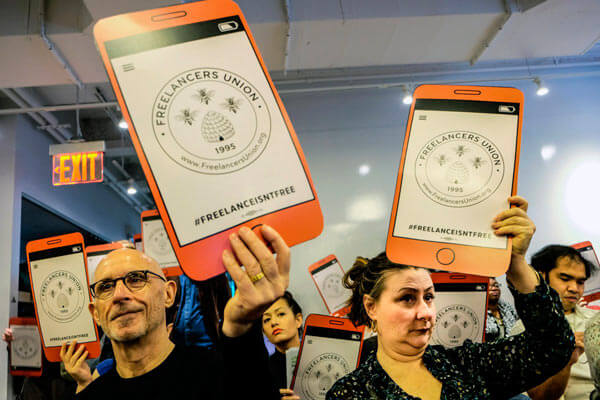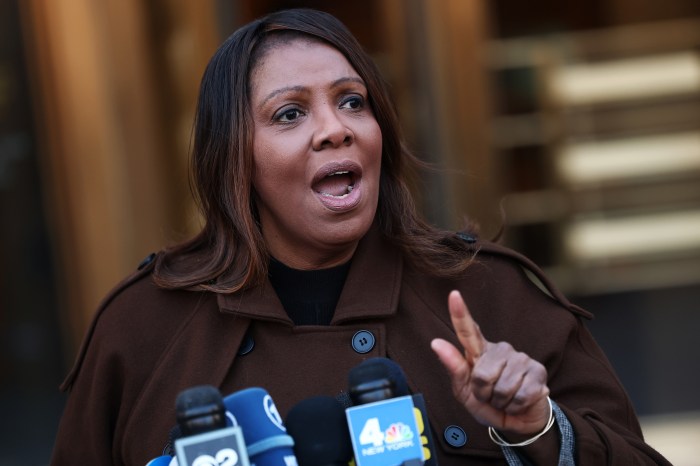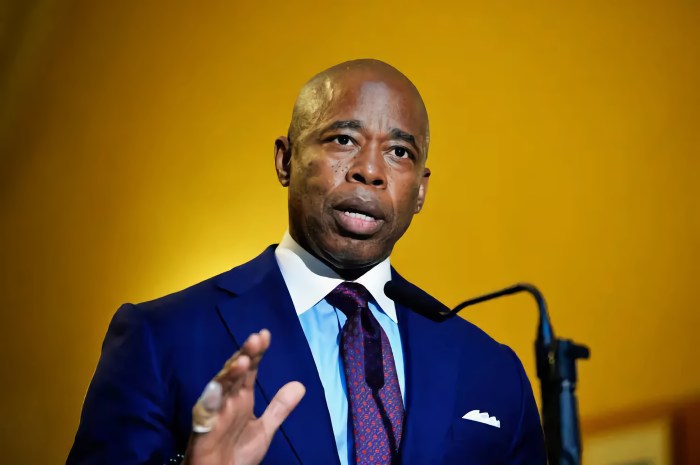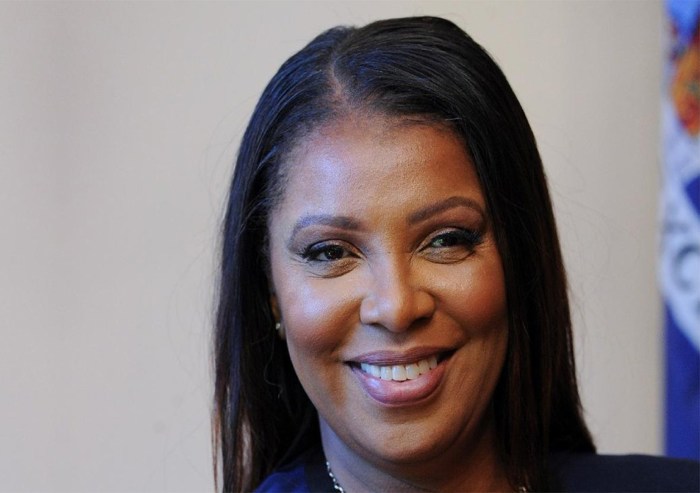“Freelancers have their rights starting today,” said Department of Consumer Affairs Commissioner Lorelei Salas to the freelancers celebrating the historic payment protection law that went into effect May 15.
The ‘Freelance Isn’t Free’ law enacted by New York City Council provides New York City freelancers with wage theft protections and is the first of its kind to extend a social safety net to the country’s freelancers.
Writers, photographers, graphic artists, actors, event planners, website developers, film production professionals, a pattern maker, and a makeup artist were among the freelancers who packed the room in lower Manhattan.
The commissioner spoke about how important this law is toward securing financial stability for freelance workers who bring talents to companies and then struggle to make ends meet when it takes months to get paid, or they just don’t get paid. “DCA’s Office of Labor Policy & Standards is committed to working on behalf of freelancers to created a more secure workforce for today’s evolving economy,” she said.
Under the new law, any company who hires a freelance worker must execute a simple written contract describing the work to be completed, the rate and method of payment, and the date when payment is due. Companies in violation will face penalties, including double damages, attorney’s fees, and civil penalties.
Last year, more than 70 percent of freelancers said they experienced late payment or nonpayment at some point in their career, forcing many to use credit cards or rely on government assistance to make up the difference.
Council Member Brad Lander introduced the law to City Council. “Starting today, New York City will be the first city in the nation to protect freelancers and independent contractors from getting stiffed,” he said, as he thanked a dozen members of the Freelancers Union standing behind the podium and its Founder and Executive Director Sara Horowitz for their work and leadership in passing this legislation. A victorious vibe permeated the room.
Chair of City Council’s Committee on Consumer Affairs Rafael Espinal’s Bushwick district has many freelance Internet professionals and was a part in securing rights for freelancers through the law. He reminded the assembled, “We must continue fighting for pay equity, better working conditions, and rights for all workers — both unionized and nonunionized workers — throughout our city and beyond.”
The United Federation of Teachers (UFT) and several labor and artists unions, civic organizations as well as co-working spaces backed this act.
On behalf of the National Writers Union, its president Larry Goldbetter thanked all the City Council supporters and allies in labor, the community and business. “We hope this law becomes a model for protecting freelance workers everywhere,” he said.
The Freelancers Union championed this legislation and is a nationwide membership organization of 360,000. Unveiling new legal resources to help independent workers get paid for the work they do, it launched the Freelancers Union App, which connects freelancers with lawyers committed to representing this workforce when they become victims of wage theft.




























